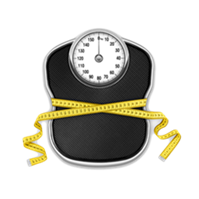Weight loss clinics are a type of healthcare facility that focus on helping individuals to lose weight and improve their overall health. They typically offer a variety of services, such as medical consultations, diet and exercise plans, and weight loss medications, to help individuals achieve their weight loss goals.
- Medical Consultations: Weight loss clinics typically begin with a medical consultation, where a healthcare professional will evaluate your overall health and discuss your weight loss goals with you. They may also perform a physical examination and take measurements such as your body mass index (BMI) and blood pressure. This information is used to create a personalized weight loss plan that is tailored to your individual needs.
- Diet and Exercise Plans: After the initial consultation, weight loss clinics will provide a diet and exercise plan that is tailored to your individual needs. This may include recommendations for healthy foods to eat, portion sizes, and types of physical activity that are best suited for your body type and fitness level. They may also provide education on how to read food labels and how to make healthy food choices when eating out.
- Medications: Some weight loss clinics may also offer weight loss medications, such as appetite suppressants or fat burners, as part of their treatment plan. These medications can help to reduce feelings of hunger and increase feelings of fullness, which can make it easier to stick to a diet and exercise plan.
- Monitoring Progress: Weight loss clinics will also monitor your progress throughout your weight loss journey. They may take measurements such as your weight, BMI and blood pressure at regular intervals to track your progress and make adjustments to your treatment plan as needed.
- Support and Education: Weight loss clinics may also provide ongoing support and education through group meetings or individual counseling. This can help you to stay motivated and on track with your weight loss goals.
It’s worth noting that weight loss clinics are not a magic solution for weight loss and it’s important to have realistic expectations about what they can achieve. Additionally, weight loss clinics may not be covered by insurance, and the cost of their services can be high. It’s important to do your research and choose a reputable weight loss clinic that is staffed by licensed healthcare professionals.
In summary, weight loss clinics offer a variety of services to help individuals lose weight and improve their overall health. They typically begin with a medical consultation to evaluate overall health, create a personalized weight loss plan, and monitor progress. They often include diet and exercise plans, weight loss medications, monitoring progress, and support and education. However, it’s important to keep in mind that weight loss clinics are not a magic solution for weight loss, and it’s crucial to have realistic expectations about what they can achieve. It’s also important to research and choose a reputable weight loss clinic that is staffed by licensed healthcare professionals.
Additionally, it’s worth noting that weight loss clinics may not be covered by insurance, and the cost of their services can be high. It’s important to consider the cost of the services and weigh them against the potential benefits.
Furthermore, weight loss clinics may also offer weight loss surgery options like gastric bypass, sleeve gastrectomy or gastric banding for individuals with severe obesity. However, these procedures should be considered only after discussing the risks, benefits and alternatives with a qualified surgeon and after trying non-surgical methods for weight loss.
In any case, it’s important to remember that weight loss clinics are only one aspect of weight loss and should be used in conjunction with a healthy diet and regular exercise. Sustainable weight loss requires a combination of healthy eating, regular physical activity, and a change in lifestyle habits. It’s essential to consult with a healthcare professional or registered dietitian before starting any weight loss program and to make sure that the program is safe, effective and tailored to your individual needs.
In conclusion, weight loss clinics can be a useful tool in promoting weight loss, but it’s important to approach them with realistic expectations, and to understand the potential risks and benefits of their services. They should be used in conjunction with a healthy diet and regular exercise, and it’s essential to consult with a healthcare professional or registered dietitian before starting any weight loss program. Additionally, cost and insurance coverage should be considered before starting any program.







